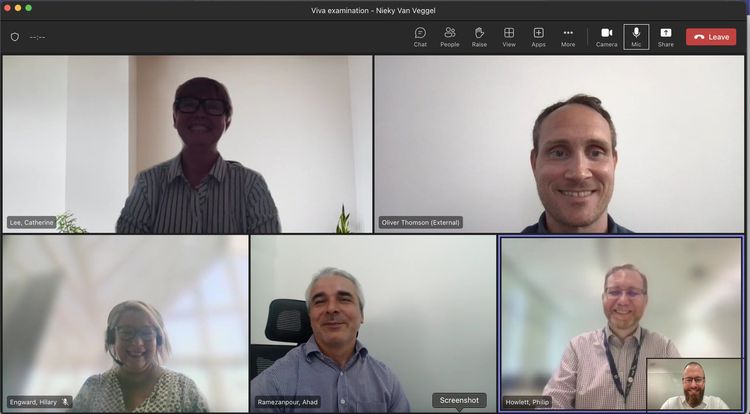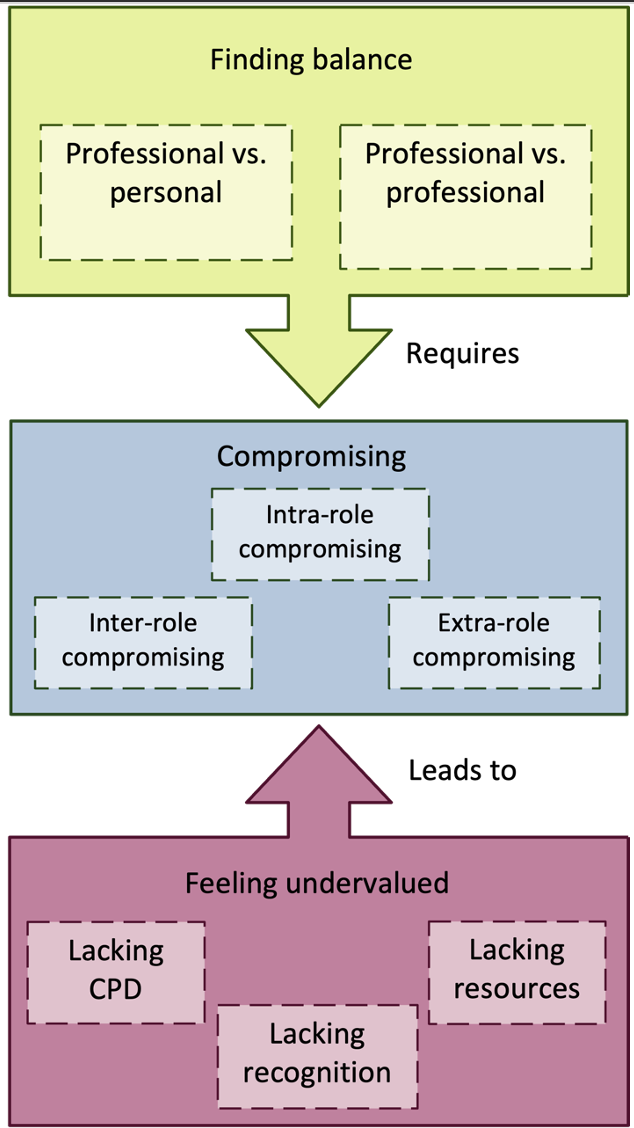Virtual research interviews reading list

After spending most of the day writing about how I did my EdD research, I have been thinking about the implications of switching between face-to-face and virtual interviews. This particular section of the methods chapter was interesting to write, as I did not really think about this when I was doing my interviews. Not because of ignorance, but because being an academic during a pandemic was a constantly changing online-offline landscape. Switching between online and offline interviews felt similar to switching between online and offline meetings, or teaching. I think what I am trying to say is that it is something I was used to.
It wasn't until I was forced to think about this that I started wondering whether there is a difference between the two. Both types of interview have advantages and disadvantages, both from a logistical as well as social perspective. I think that for my project there has not been any discernable impact of using virtual interviews, because all participant were in the same environment and role as I was, familiar with platforms used, access to software was part of daily life and interviews took place during working hours. However, there are some important implications to consider before using virtual interviews, e.g. when it comes to digital literacy of participants, interview space for participants (do they have a safe/quiet space to talk), topics for discussion, and stable internet connection.
These kind of topics have been discussed at length by various researchers over the past decade and more. It is no surprise that there has been an increase in research investigating virtual interviews, and I think anyone considering using virtual interviews should spend time reading and contemplating before proceeding, even if it is just because it helps with writing up of your research. I certainly wish I had the opportunity to think about this beforehand, but unfortunately Covid left me with little choice. Regardless, I have had great interviews with brilliant participants, and I have learnt a lot from what they have told me.
For those interested, the following bibliography is a good starting point for your reading on this topic. If there is only one paper you read, let it be the gem by Engward et al. As always, if you are struggling to get hold of a paper just give me a shout.
Happy reading,
Nieky
Bibliography
Archibald, M.M., Ambagtsheer, R.C., Casey, M.G., Lawless, M. (2019) Using Zoom Videoconferencing for Qualitative Data Collection: Perceptions and Experiences of Researchers and Participants. International Journal of Qualitative Methods. 18, 1609406919874596.
Deakin, H., Wakefield, K. (2014) Skype interviewing: reflections of two PhD researchers. Qualitative Research. 14(5), 603–616.
Engward, H., Goldspink, S., Iancu, M., Kersey, T., Wood, A. (2022) Togetherness in Separation: Practical Considerations for Doing Remote Qualitative Interviews Ethically. International Journal of Qualitative Methods. 21, 160940692110732.
Gray, L., Wong-Wylie, G., Rempel, G., Cook, K. (2020) Expanding Qualitative Research Interviewing Strategies: Zoom Video Communications. The Qualitative Report.
Irani, E. (2019) The Use of Videoconferencing for Qualitative Interviewing: Opportunities, Challenges, and Considerations. Clinical Nursing Research. 28(1), 3–8.
Krouwel, M., Jolly, K., Greenfield, S. (2019) Comparing Skype (video calling) and in-person qualitative interview modes in a study of people with irritable bowel syndrome – an exploratory comparative analysis. BMC Medical Research Methodology. 19(1), 219.
Lo Iacono, V., Symonds, P., Brown, D.H.K. (2016) Skype as a Tool for Qualitative Research Interviews. Sociological Research Online. 21(2), 103–117.
Matthews, K.L., Baird, M., Duchesne, G. (2018) Using Online Meeting Software to Facilitate Geographically Dispersed Focus Groups for Health Workforce Research. Qualitative Health Research, 1049732318782167.
Oliffe, J.L., Kelly, M.T., Gonzalez Montaner, G., Yu Ko, W.F. (2021) Zoom Interviews: Benefits and Concessions. International Journal of Qualitative Methods. 20, 16094069211053522.
Opdenakker, R. (2006) Advantages and Disadvantages of Four Interview Techniques in Qualitative Research. Forum Qualitative Sozialforschung / Forum: Qualitative Social Research. 7(4).
Roberts, J.K., Pavlakis, A.E., Richards, M.P. (2021) It’s More Complicated Than It Seems: Virtual Qualitative Research in the COVID-19 Era. International Journal of Qualitative Methods. 20, 16094069211002960.
Weller, S. (2017) Using internet video calls in qualitative (longitudinal) interviews: some implications for rapport. International Journal of Social Research Methodology. 20(6), 613–625.
Wray, J., Barrett, D. (2022) In the room where it happens: in-person or remote data collection in qualitative research? Evidence Based Nursing, ebnurs-2022-103535.





